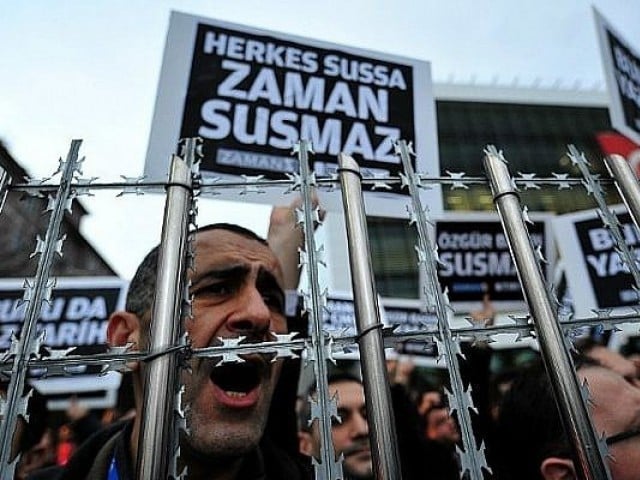
Thirty-one former employees of a now shuttered Turkish newspaper that had backed the US-based Islamic preacher Fethullah Gulen went on trial Monday charged with links to the failed 2016 coup.
Those on trial include writers and executives from the Zaman daily and its English-language sister publication Today’s Zaman, which were taken over by the state in March 2016 and shut down in July that year.
The trial is the latest to get underway for journalists in Turkey under the state of emergency imposed after the botched putsch, fuelling growing concerns over press freedoms in the country.
Both publications were closely aligned with Gulen, whom Turkey accuses of orchestrating the July 15, 2016, coup attempt against President Recep Tayyip Erdogan. Gulen has strongly denied the charge.
Twenty-two suspects in the case are being held in detention, with the remainder free under judicial supervision or on the run, the state-run Anadolu news agency said.
The trial is being held at a special courthouse next to the Silivri prison complex on the outskirts of Istanbul.
Those being held in jail include the prominent academic and former Zaman columnist Mumtazer Turkone and the writer Sahin Alpay.
They are charged with seeking to overthrow the Turkish government and with membership in an armed terror group. If found guilty, they face multiple life sentences.
According to the P24 press freedom website, there are 171 journalists behind bars in Turkey, most detained under the state of emergency.
Dozens are currently on trial, with the most prominent and controversial case being pursued against staff at the anti-Erdogan Cumhuriyet daily.
Seventeen suspects are on trial in that case, including writers, executives and even cartoonists, and five of them are being detained during the proceedings.
The Cumhuriyet employees say they vigorously opposed the coup and have long been critical of Gulen. One of the paper’s writers on trial, Ahmet Sik, even wrote a book exposing Gulen’s role in Turkish politics.
Once an ally of Erdogan and his Islamic-rooted Justice and Development Party, Gulen amassed huge influence through supporters in the media, the judiciary, police and education.
But in the last half decade he fell out with the government, which accused the Pennsylvania-based preacher of seeking to build a “parallel state” aimed at usurping Erdogan.
Zaman and Today’s Zaman used to be supportive of Erdogan but became hugely critical as tensions rose between him and Gulen.

No comments:
Post a Comment